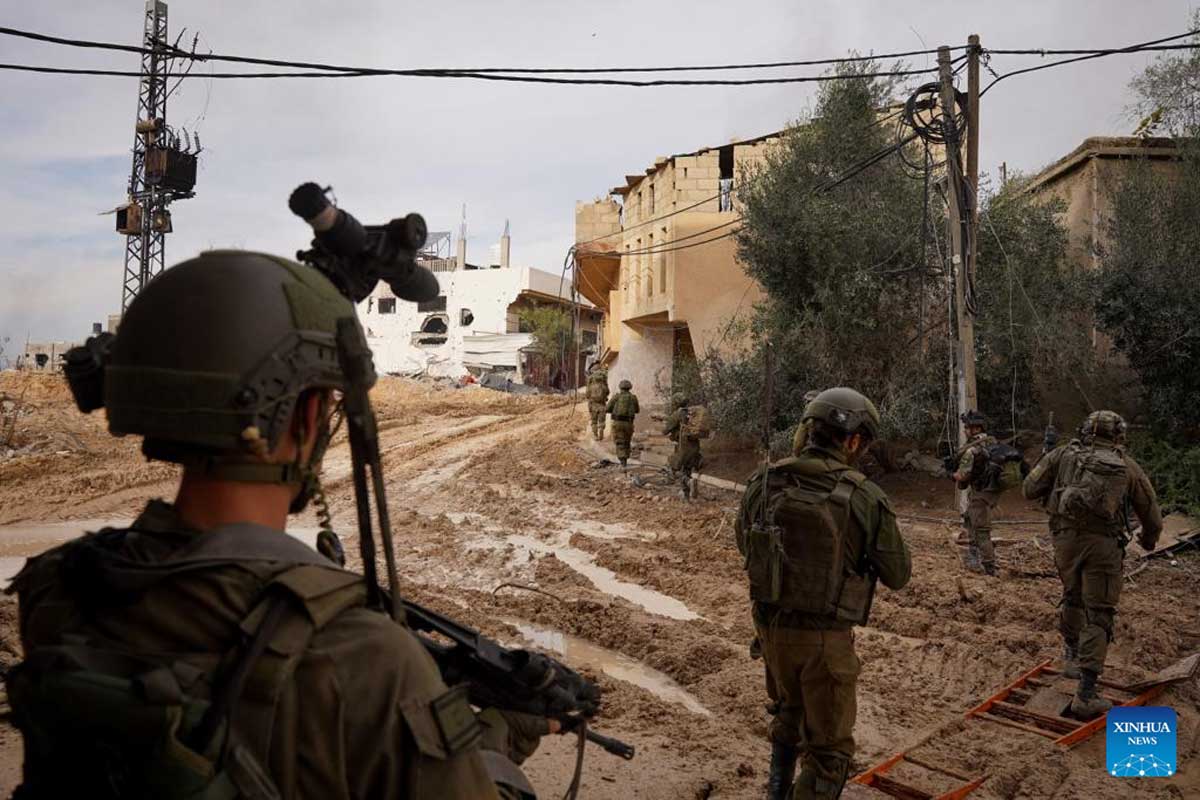The 2023-2024 war started on October 7, 2023, when Hamas attacked Israel, which brought Israel to conduct a vast offensive in the Gaza Strip. The main battlefield of that war was in the Gaza Strip, yet there has been also an attrition war between Israel and Hezbollah. The latter, like Hamas, is a pro – Iranian NSA (Non-State actor), only Hezbollah is based in Lebanon. The IDF (Israel Defense Forces) has been striking inside Lebanon, mainly with air power, while Hezbollah hits Israel with rockets, missiles and drones. None of the sides launched a ground operation, knowing it might escalate the fight into a major war. Both Israel and Hezbollah seek to avoid it. Israel warned it would send Lebanon to the stone age, but Israel would absorb heavy losses and damages in such a war. Both Israel and Hezbollah don’t want to pay the heavy price of a full-scale war. Therefore, both sides have to reduce, at least gradually, the ongoing attrition war between them, and hopefully reach a cease-fire.
Israel might eventually decide it must conduct a large-scale offensive in Lebanon, but it has to be done only if there is no better choice if Hezbollah insists on continuing fighting. Hezbollah declared it confronts Israel because of war in the Gaza Strip, which is in decline. If it is officially over and Hezbollah refuses a cease-fire and diplomacy fails to end the attrition war between Israel and Hezbollah, then Israel would increase her military efforts against Hezbollah. Since the latter is much stronger than Hamas and Hezbollah are also on high alert, Israel should try to capture the group off guard. Israel must invest enough time and resources to be ready for war, but even then Israel might pay dearly and face a possible failure if it strives to defeat Hezbollah once and for all.
On August 25, 2024 “ Israel carried out large-scale preemptive strikes against Hezbollah targets in Lebanon… Although the exchange represented another peak in the past year’s worth of fighting between the two sides … they quickly returned to their “fighting routine” on the ground and appear inclined to remain in that mode.” It was an important test of the ability of both Israel and Hezbollah to restrain their actions. Yet another similar round like that, as part of their attrition war, might end up differently. Both sides would learn their lessons from the clash on August 25, each one might assume it can do better next time, which might lead to a rapid escalation.
Hezbollah and Israel fought each other in the past when the IDF was deployed in Lebanon, in the 1980s and 1990s. In 2000 the IDF withdrew from Lebanon. In 2006 there was a war between them, that went on for 34 days. Since then, the two sides prepared for another war, while trying to deter their foe. Nevertheless, they were careful not to get dragged into a war and there were almost no serious clashes between them for 17 years, until 2023. It was quite an achievement.
Europe can try to de escalate the current attrition war between Israel and Hezbollah. The United States can play a crucial part here. Israel relies on its American patron “for military and political support. The Biden administration assists Israel in the 2023-2024 war, but the Biden administration has been also eager to limit and shorten the war as much as possible due to growing criticism in the United States, following the humanitarian crisis in the Gaza Strip. The United States has been also very worried that the collision between Israel and Hezbollah escalates let alone if it involves Iran too, which might drag the United States into it, against her will. Since Israel heavily depends on U.S. support it is obvious Israel must be very careful with her steps in Lebanon.
Israel has advanced air defense like the Arrow 3, which proved itself during the 2023-2024 war. (Israel signed a deal with Germany to sell the Arrow 3 for 3.5 Billion $.) The U.S. military and Israel had conducted joint exercises such as ‘Jenifer Cobra’, aimed at intercepting missiles. If the attrition war between Israel and Hezbollah escalates, which might include Iran too, then the IDF would need help to shoot down missiles and drones. Yet if U.S. troops are deployed in Israel they would be in harm’s way. Israel, as in past wars, must rely on her soldiers.
Lately, Iran got very close to producing nuclear weapons. Israel, as a last resort, might strike Iran’s nuclear sites. It depends on factors like if and what support Israel receives from the United States in this matter. Israel also has to estimate if and to what extent Hezbollah might join Iran. Hezbollah is Iran’s top protégé, but this group is an independent player. Iran, seeking to retaliate following the Israeli strike, might order Hezbollah to strike Israel as hard as it can. Hezbollah might do it but the group, although it relies on Iran, might seek to reduce the cost of the war to itself and Lebanon, because of the Israeli retribution. Israel has to figure out what would be Hezbollah’s response and act accordingly. Maybe Israel and Hezbollah can limit the scale of the fight between them, but there is no guarantee of that.
In the bottom line, eventually, Israel might conclude it has to confront Hezbollah. For now, Israel and Hezbollah should continue to be very careful, to avoid a full-scale war that would be very costly to Lebanon and Hezbollah, but Israel would pay a high price too.
